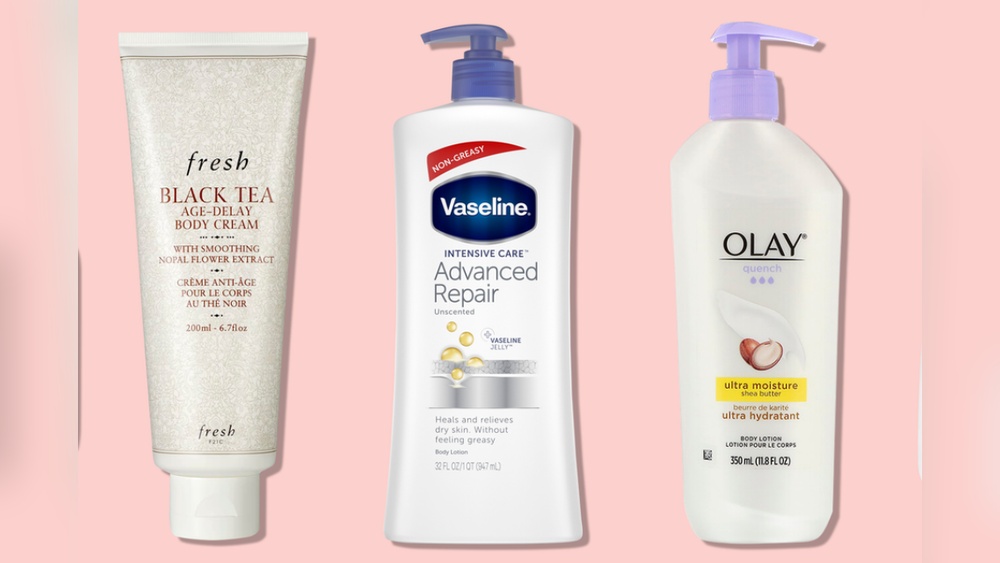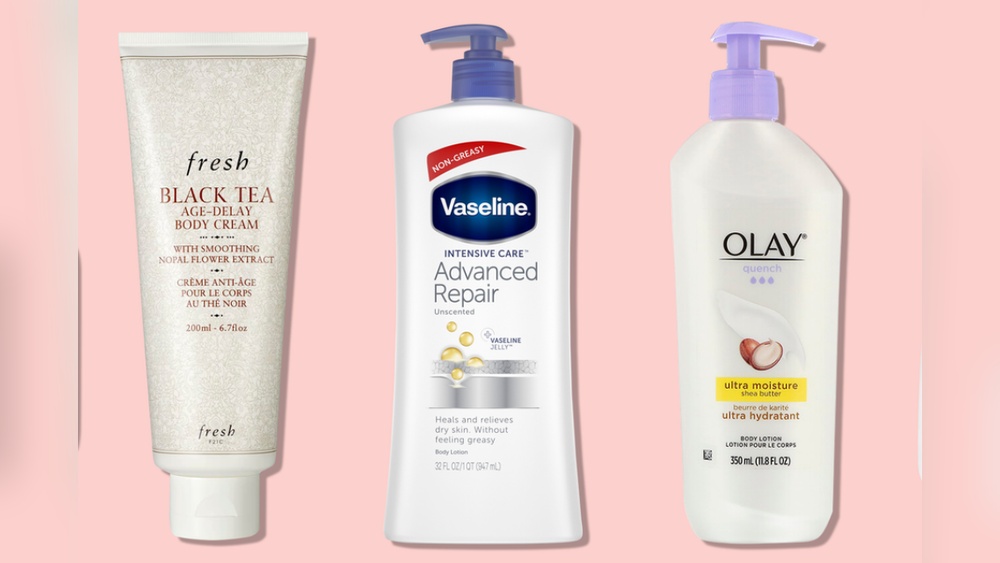Have you ever reached for your body cream to soothe your dry face, only to wonder if it’s really safe or effective? You’re not alone.
Your face is delicate, and what works for your body might not suit your skin’s unique needs. But can you actually use body cream on your face without causing harm? If you’ve been curious or cautious about mixing your skincare products, this article will clear up the confusion.
Keep reading to discover what really happens when body cream meets facial skin—and how to make the best choice for your glow.
Differences Between Body Cream And Facial Cream
Understanding the differences between body cream and facial cream is key before you decide to swap one for the other. Your face has unique needs compared to the rest of your body, and these differences often show up in the product design. Knowing what sets these creams apart can help you avoid skin issues and get the best results.
Formulation And Ingredients
Body creams usually contain thicker oils and heavier emollients to tackle rougher skin areas like elbows and knees. They often include fragrances and ingredients that might irritate facial skin. Facial creams focus on gentle, non-comedogenic ingredients that hydrate without clogging pores.
Have you ever used a body lotion on your face and noticed breakouts or irritation? That’s because the formulation isn’t made for the delicate facial skin. Look for facial creams with soothing agents like hyaluronic acid or niacinamide designed to calm and protect.
Texture And Absorption
Body creams tend to be dense and take longer to absorb, which works well for thick skin but can feel heavy or greasy on your face. Facial creams are lighter, allowing your skin to breathe and absorb nutrients quickly. This helps prevent clogged pores and leaves your skin feeling fresh.
If your face feels sticky or oily after applying a body cream, it’s a sign the texture isn’t suitable. Wouldn’t you prefer a cream that melts into your skin within seconds?
Skin Sensitivity Considerations
Your facial skin is more sensitive and prone to reactions than most body areas. Body creams might contain strong preservatives or essential oils that can cause redness or allergic reactions on your face. Facial creams undergo strict testing to be safe for sensitive skin.
Think about how your skin reacts to different products. If you’ve experienced irritation before, it’s smart to choose products specifically made for your face. Do you want to risk discomfort just to save a few bucks on body cream?
Potential Risks Of Using Body Cream On Face
Using body cream on your face might seem convenient. Many people wonder if it is safe. The skin on your face is delicate and different from your body skin. Body creams often have heavy ingredients that may not suit facial skin. This can lead to several problems over time. Understanding the risks helps you make better choices for your skin care.
Clogged Pores And Breakouts
Body creams often contain thick oils. These oils can block pores on your face. Clogged pores trap dirt and bacteria. This leads to pimples and acne. Facial skin is more sensitive to heavy products. Using body cream may cause frequent breakouts.
Irritation And Allergic Reactions
Many body creams have fragrances and strong chemicals. These can irritate facial skin. Redness, itching, and burning are common signs. Allergic reactions may also happen. Your face can become dry or flaky. Body creams are not tested for facial use. This increases the risk of irritation.
Long-term Skin Damage
Repeated use of body cream on the face can harm skin. It may weaken the skin barrier. This causes dryness and sensitivity. Over time, it can lead to uneven skin tone. Wrinkles and fine lines may appear sooner. Protect your facial skin with products made for it.
When Body Cream Might Be Safe For Facial Use
Body cream is made for thicker skin on the body, not the delicate face. But some body creams might be gentle enough for facial use. Choosing the right one matters a lot. Certain types of body creams can work well without causing irritation or breakouts.
Here are key points about when body cream might be safe for your face.
Non-comedogenic Formulas
Non-comedogenic means the cream won’t clog pores. This is very important for facial skin. Some body creams are labeled non-comedogenic. These creams reduce the risk of acne and blackheads. Using such creams on your face can be safer than regular body creams. Always check the label before applying.
Fragrance-free And Hypoallergenic Options
Fragrances and harsh chemicals often irritate sensitive facial skin. Fragrance-free creams lower chances of redness and itching. Hypoallergenic creams are made to cause fewer allergic reactions. Choosing these types can protect your skin from harm. They are often better choices for facial use.
Patch Testing Before Application
Patch testing helps avoid surprises. Apply a small amount of cream on your wrist or behind your ear. Watch for 24 hours to see any reaction. If no redness or itching occurs, the cream may be safe for your face. This simple step prevents unwanted skin problems.

Credit: glamourdusk.com
Expert Tips For Choosing Facial Moisturizers
Choosing the right facial moisturizer can feel confusing. Many people wonder if body cream suits the face. Experts say facial skin needs special care. Using the correct moisturizer helps keep your skin healthy and comfortable. Here are some expert tips to guide your choice.
Look For Lightweight Formulas
Facial skin is delicate and thin. Heavy creams can clog pores and cause breakouts. Lightweight formulas absorb quickly without leaving a greasy feel. Gel-based or water-based moisturizers work well for most people. They hydrate without weighing skin down.
Check For Skin Type Compatibility
Dry skin needs rich creams with extra moisture. Oily skin benefits from non-comedogenic, oil-free products. Sensitive skin requires gentle, fragrance-free options. Know your skin type before choosing a moisturizer. This helps prevent irritation or dryness.
Importance Of Spf In Daily Use
Sun damage ages skin and causes dark spots. Use a moisturizer with SPF for daily protection. Even on cloudy days, UV rays can harm your skin. SPF 30 or higher shields your face from harmful rays. Daily use keeps skin safe and healthy.
Alternatives To Body Cream For Facial Care
Body cream is thick and rich, but your face needs different care. The skin on your face is more sensitive and delicate. Using the right products keeps your face healthy and fresh. Here are some alternatives that suit facial skin better.
Facial Oils And Serums
Facial oils and serums are light and absorb quickly. They provide deep moisture without clogging pores. Oils like jojoba and rosehip help nourish and protect skin. Serums often contain vitamins and antioxidants for extra care. Both options improve skin texture and glow.
Gel-based Moisturizers
Gel-based moisturizers are great for oily or acne-prone skin. They hydrate without feeling heavy or greasy. These gels cool and soothe the skin instantly. Many contain ingredients like aloe vera or hyaluronic acid. They keep your face balanced and fresh all day.
Natural And Diy Options
Natural ingredients can be gentle and effective on your face. Aloe vera gel calms irritated skin and adds moisture. Honey works as a natural cleanser and hydrator. You can mix small amounts of coconut oil with water for softness. Always test a small patch first to avoid reactions.

Credit: plumgoodness.com
How To Transition From Body Cream To Facial Products
Switching from body cream to facial products needs care. The skin on your face is thinner and more sensitive. This means your face might react differently than your body. Taking small steps helps your skin adjust well. Here is how to do it right.
Gradual Introduction
Start by using the body cream on a small part of your face. Choose a less sensitive area like your jawline. Use the cream once a day at first. Watch how your skin feels. If it feels okay, slowly increase the use to twice a day. This slow approach helps your skin get used to the new product.
Monitoring Skin Reactions
Check your skin every day for any changes. Look for redness, itching, or small bumps. These are signs of irritation. If you notice any of these, stop using the cream on your face. Give your skin time to heal. If no reaction happens, continue using it carefully. Always keep your skin clean and moisturized.
Adjusting Skincare Routine
Change your routine based on how your skin reacts. You might need to use lighter products for your face. Avoid heavy creams that block pores. Use gentle cleansers and sunscreens. Add the body cream only if your skin feels comfortable. Keep your routine simple and consistent for the best results.

Credit: lifehacker.com
Frequently Asked Questions
Can Body Cream Cause Breakouts On The Face?
Yes, body creams can clog facial pores and cause breakouts. Facial skin is more sensitive and needs lighter, non-comedogenic products.
Is Body Cream Safe For Sensitive Facial Skin?
Body creams often contain heavier ingredients that may irritate sensitive facial skin. It’s best to use products formulated specifically for the face.
How Does Body Cream Differ From Facial Moisturizer?
Body creams are thicker and richer, designed for tougher skin. Facial moisturizers are lighter and formulated to balance facial skin’s needs.
Can Using Body Cream On Face Affect Skin Texture?
Yes, body creams can make facial skin greasy or cause uneven texture. Facial products maintain smoothness without heaviness or residue.
Conclusion
Using body cream on your face can cause problems for sensitive skin. Body creams often contain heavier ingredients not meant for facial use. Your face needs lighter, gentle products to stay healthy. Choosing the right cream helps avoid breakouts and irritation.
Always check the label before applying any cream. Taking care of your skin means using the right products. Treat your face with special care every day. Simple steps lead to better skin health and comfort.




